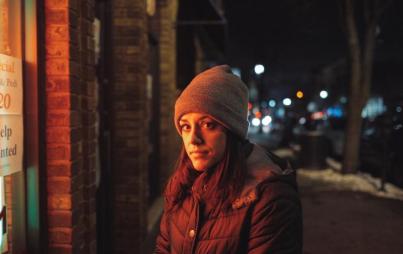
Making the decision to vaccinate your child is making the decision to vaccinate part of a community of people. We talk about vaccinations as if they are bulletproof vests, but they are also quick and effective ways to unload assault weapons.
I love vaccines. I think they are pretty great. I am vaccinated. My entire family is vaccinated. And when I have kids, I will vaccinate them. Definitely. Because science. And also morality. I won’t vaccine my kids for their protection alone — I’ll vaccinate them for the protection of all the other kids (and grown-ups) out there, too.
I can understand some of the opposition to SB 277. On principle, I don’t like the government telling me what I can and can’t do with my own body. I don’t want them to tell me what I’m allowed to do with my marriage, my uterus, and certainly not with my kids. That breaches my core belief in bodily autonomy and individual freedom. And the government sticking its nose in my personal decisions does not sound much like autonomy.
But do you know what else robs bodies of their autonomy? Illness. Big time.
Disease takes the body over, and, in the cases of the diseases we vaccinate for, moves swiftly on to other bodies. It does not ask permission to enter. It does not sit down at the table with you and discuss the business policies of American pharmaceutical companies. It just makes people sick.
Making the decision to vaccinate your child is making the decision to vaccinate part of a community of people. We talk about vaccinations as if they are bulletproof vests, but they are also quick and effective ways to unload assault weapons. Not everybody can wear the vest, so it’s our responsibility to unload all of the guns. Herd immunity is not just a scientific occurrence, it is a moral imperative.
To “elect” out of vaccinating children is to compromise the autonomy of all children. This is a decision that, in order to be successful, must be made collectively, by all of us. It is an example of a basic tenet of forming a successful society. Vaccinations are a part of a social contract. We agree to give up certain freedoms in order to enjoy bigger freedoms. It’s why we stop at red lights. It’s why pay sales tax. It’s why we have a law like SB 277.
We follow a law that requires us to vaccinate our kids. We give up a little piece of freedom — the freedom to decide what shots we give our kids — to get a much bigger piece of freedom: the freedom for all kids to exist and learn in the world protected and prevented from spreading diseases that would otherwise rob them of that freedom entirely.
Of course, there are risks to vaccines, but the risks of a world where parents continually elect to not vaccinate their children are much higher. I know that these parents are making these decisions with their children’s best interests in mind, but the decision to forgo vaccinations for your healthy child is, on the macro scale, an inconsiderate choice.
The gap that scientists estimate as acceptable in order to insure herd immunity exists for people who need to be exempt from vaccines, not for people who would rather not have them. The kids too sick for vaccines don’t have a choice in the matter, either. They never had the choice to be healthy. The leeway for herd immunity does not exist for philosophical or political reasons. It exists for children too weak to protect themselves from deadly diseases. And there is nothing political about that.
I think our biggest problem with vaccines is not the risks or concerns about making a business out of health, but with the way we talk about them. We talk about vaccines for my children, or our family. That’s not what they are for. Maybe immediately, yes, a vaccine will protect your individual child from disease. It is a good incentive for pursuing vaccinations. But, in the big picture, we get vaccines for each other. They are a gift we give the world. We decide to be responsible and proactive about our health, and in turn, improve the health of everyone else.
America is very seldom threatened by the diseases we vaccinate for, but that is because we have spent years building up immunity to those deadly diseases. It is not a sign that we should stop vaccinating — it is a sign that we are doing the right thing.
I have Obsessive Compulsive Disorder, and I take a medication that protects my brain (and body) from an uncontrollable illness. It has improved the quality of my life tenfold. Say I were to decide that since my OCD has lessened, I should stop taking my medication. I may be able to feel OK with the residual health benefits of my medication, but eventually my compulsions would return. The defenses that my meds fortify my body with would become no longer available. The same applies for all of us regarding vaccines. We are our own people, but with contagious diseases, we are one big body, and we need to keep taking our meds.
Is someone probably getting rich off the medication I take for my OCD? Yes. Are there side effects and risks to the meds I take? Obviously — it makes me need to pee all the time, and some people are allergic to it. The same can be said for the vaccines we give our kids. Those are things worth talking about, but we don’t need to halt vaccinations in order to talk about them. That puts us in unnecessary danger, and doesn’t help the conversation any further. It can even be a hindrance to the conversation.
Let’s help keep each other healthy, and talk about it while we do it.
Let’s keep taking our meds.



